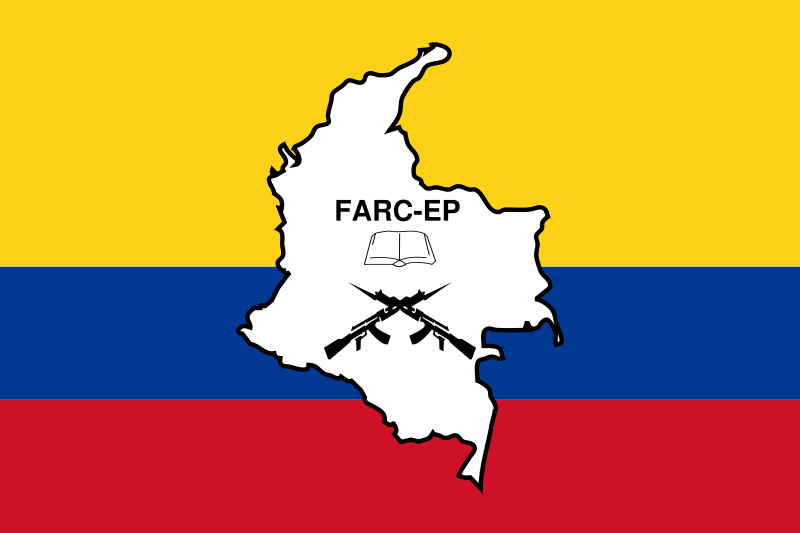SUMMARY
This is AI generated summarization, which may have errors. For context, always refer to the full article.

BOGOTA, Colombia – Colombia’s government and leftist rebels embark next week on historic peace talks which aim to end half a century of bitter conflict and bloodshed.
The negotiations, set to get underway in Oslo, Norway on October 15, aim to bring an end to Latin America’s longest-running armed conflict. A second round of talks is set to follow in Havana, Cuba.
The last attempt at peace talks collapsed a decade ago when the Colombian government determined that the guerrillas were regrouping in a demilitarized zone the size of Switzerland, created to help reach a peace deal. Earlier attempts at negotiated peace also ended in failure.
More than two-thirds of Colombians, according to a recent survey, believe the talks may be the best chance to end the conflict that has claimed thousands of lives, left hundreds of thousands maimed or injured, and cost billions of dollars in lost productivity.
“Who does not want peace?” said one Colombian, Girolly Guttierez who makes his living selling wood in Bogota.
“There is an atmosphere of reconciliation, something important could happen in Colombia,” he told AFP.
Hostilities to continue
But even as talks commence in the Norwegian capital, hostilities formally will continue between the Bogota government and the Revolutionary Armed Forces of Colombia (FARC), who will be holding their negotiations in the absence of a ceasefire.
At the UN General Assembly meeting in New York last month, Colombian President Juan Manuel Santos said he is approaching the talks with “prudence, seriousness and determination.”
Latin America’s largest rebel group, founded in 1964, with 9,200 armed fighters, the FARC may finally be ready for a truce after a long string of setbacks.
In recent years, it has suffered the capture and killing of some of its top leaders, and the depletion of its ranks to half of what they were at their peak in the 1990s.
A war-weary Colombian public also appears to be more-than-ready for an end to the violence.
“Public opinion and political and social sectors all are optimistic about the beginning of the peace process,” Maria Clemencia Castro, director of the Observatory on Disarmament at the National University of Bogota told AFP.
“The guerrillas have come to understand that a military victory is impossible and the government is willing to find a way out through political means,” Castro said.
Santos, who came to power in 2010, has continued to keep up the military pressure on the rebels,trying to achieve a peace through strength and determined, he has said, “not to repeat the mistakes of the past.”
FARC leader Timoleon Jimenez has been instrumental in the change of strategy which has allowed the talks to resume. He has taken the FARC out of the business of kidnapping for ransom — although he has decried the government’s refusal to agree to a ceasefire.
Risks of failure in talks
Some experts said peace talks without a ceasefire raises the risks of failure in the negotiations.
“Negotiating in the midst of conflict involves the risk that an attack will permanently impede peace efforts,” Colombian political scientist Fernando Giraldo told AFP.
Still, he said, the government’s position is a “pragmatic” one.
“In the event of failure, it will be less costly for the government since military actions have not stopped,” Giraldo said.
Meanwhile, the government has said it is giving the talks just a few months to produce results — another nod to those skeptical of the FARC’s intentions, experts said.
The last peace negotiations a decade ago failed after an agreement to demilitarize large areas of the country allowed the FARC to grow stronger.
But said Javier Ciurlizza, regional director of the International Crisis Group, a non-governmental organization which specializes in conflict resolution, “If the communities in the combat zones do not feel that the conflict is subsiding and feel that the humanitarian crisis is continuing, support (for talks) will erode.”
The group has called for both sides to agree to a bilateral ceasefire early in the talks, to enhance the chances of a more enduring peace.
If the negotiations fail, he said, it would “give ammunition to the political opposition which will question the very idea of trying to hold peace talks.” – Agence France-Presse
Read the full text of President Noynoy Aquino’s speech: Agreement paves way for enduring peace in Mindanao
Read the full text of the Framework Agreement between the Philippine government and the Moro Islamic Liberation Front (MILF) on the establishment of the new autonomous political entity, Bangsamoro, that will replace the Autonomous Region in Muslim Mindanao (ARMM).
For related stories, read:
- BIFM insists on separate Bangsamoro state
- Leonen: Let’s debate the Bangsamoro deal
- Apl.de.ap to help Bangsamoro children
- MILF plans to form party
- Mixed feelings on the roadmap to peace
- FAQs: Bangsamoro peace deal
Add a comment
How does this make you feel?
There are no comments yet. Add your comment to start the conversation.